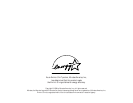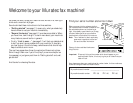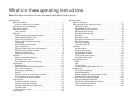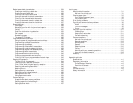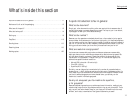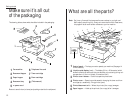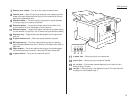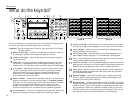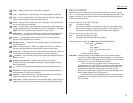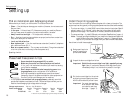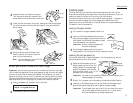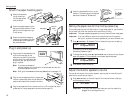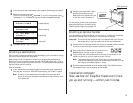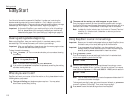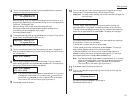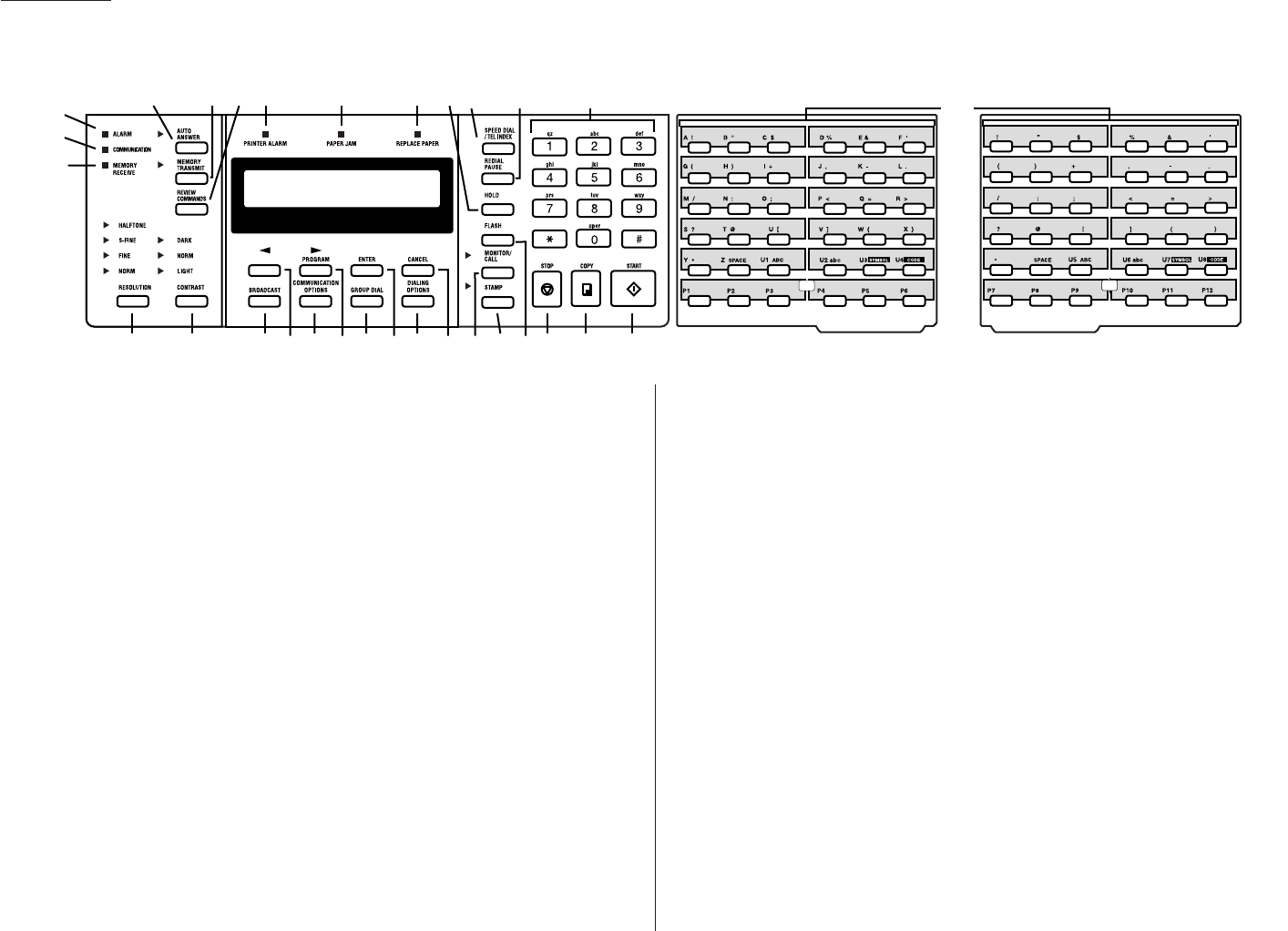
Here’s a brief description of the keys on your fax machine and what they do, as well
as a look at your machine’s indicator lights and their meanings.
Important: Some of the functions we’ll mention, here, are covered in the “Beyond
the basics” section.
1
MEMORY RECEIVE
light — If glowing, indicates your fax machine is receiving
an incoming fax document into the machine’s electronic memory.
2
COMMUNICATION
light — If glowing, advises you the fax machine is perform-
ing communication.
3
ALARM
light — If glowing, indicates a problem has occurred during fax com-
munication. (It’s also accompanied by several beeps immediately after the
problem occurs.) The light stays lit until the machine prints a Check Message.
4
AUTO ANSWER
— Selects which mode your fax machine uses to handle incom-
ing calls: answering automatically as a fax machine (auto-answer mode) or
waiting for the user to pick up an optional, connected handset (manual-
answer mode). The
AUTO ANSWER
light next to this key will glow when
auto-answer mode is the current choice.
5
MEMORY TRANSMIT
— Selects which transmission mode your fax machine uses,
whether from memory or from the document feeder. If the
MEMORY TRANSMIT
light next to this key is glowing, your machine will scan documents into mem-
ory before trying to send them. Otherwise, your fax machine will send
straight from the feeder, which is slower and also prevents others in your
office from using the fax until your communication is absolutely complete.
6
REVIEW COMMANDS
— Push this to review pending fax commands, view a brief
description of delayed commands or check other fax settings or reports.
7
PRINTER ALARM
light — Glows when your fax machine encounters a problem
printing a fax or copy. Check the display or an error report for more information.
8
PAPER JAM
light — Glows when a printout (received fax message or copy)
becomes jammed in your fax machine.
9
REPLACE PAPER
light — Glows when either the multipurpose paper tray or
paper cassette is empty. See page 1.7 for more details on replacing paper.
10
HOLD
— Either places a call on hold or takes it off hold. In certain operations,
it also produces a special character during dialing.
11
SPEED DIAL
/
TEL INDEX
— Starts a speed-dialing operation, which you finish by
pushing three of the keys on the numeric keypad. Also displays one-touch and
speed-dial entries sorted alphanumerically, as in a telephone directory.
12
REDIAL
/
PAUSE
— Redials the last number you dialed. In certain operations, it
also produces a special pause character which can be useful during the dial-
ing of long-distance numbers.
13
Numeric keypad — Just like the numeric keys on a regular tone-dialing
phone. In addition to dialing phone and fax numbers, they also enter num-
bers when you’re making certain settings.
14
One-touch keys — The keys labeled
A
–
Z
and
U
1–
U
4 (or
U
5–
U
8, if you’re using
fliptab b) offer one-touch dialing convenience. You also can use the keys labeled
P
1–
P
6 (or
P
7–
P
12, if you’re using fliptab b) for programmable functions: this
lets you teach your machine an advanced multi-step function just once, then
recall the function at any time by pressing one of these keys. Finally, you can
use these keys to type in letters and symbols for your user settings.
1.4
Getting started
What do the keys do?
1
2
3
45 10 11 12 137 8 9
1516171821 20222324252627282930 19
6
14
abc def
gh i j
kl
mno p qr
s
yz
t
u
vw
x
fliptab b
fliptab a



